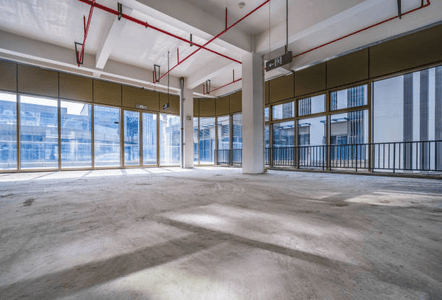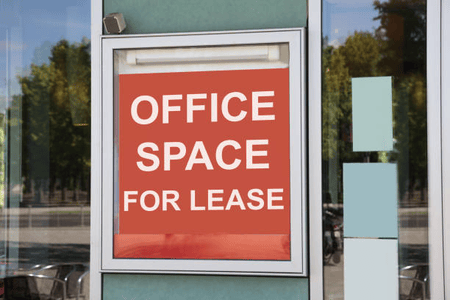Tips on Negotiating an Office Space Lease
Rent is one of the biggest recurring business expenses, and as such, it represents a significant financial commitment for any business. If you are a first-time business owner, renting out a property can seem like a challenging task. Even for seasoned entrepreneurs, negotiating an office space for lease can be daunting since most commercial leases come with countless terms and conditions, making it increasingly easier to agree to terms that you are not comfortable with or don't understand. If you are not thorough and careful during the leasing process, it could have serious repercussions for your business's profitability and even impact business growth.
What is an Office Lease?
In the simplest terms, an office lease is a legally binding contract between an entrepreneur or office tenant and the landlord. Just like a residential tenancy, an office lease gives the tenant the right to use the space for business or commercial activities for a given duration in exchange for a sum of money that is to be paid to the landlord.
Negotiating a favorable office lease will directly impact the success of your business or company. If your lease is unfavorable, on the other hand, you may end up increasing the prices of your services or products or making cutbacks, which will directly impact your competitiveness in the market. In order to minimize the risks associated with leasing, here are some considerations to make before leasing an office space.
Understand Your Office Needs
Before leasing out a space, it is important to understand the ideal office space that you will need. Note down your current and expected future office space needs and determine the ideal location and budget for the space. Here, it is important to consider factors such as upscaling or downscaling. Are you looking to move to a new space after a certain period? If so, then it is important to negotiate a lease that will cover you only for a given period.
If you are not sure about the definitive office space you will need or the near-future needs of your enterprise, it is advisable to consider a shorter lease, say two or three years. In such instances, you may end up paying more per square foot, but the lease will be more flexible since you can walk away easily if needed.
Ask For a Rent-Free Period
While many people shy away from the concept, it never hurts to ask for a rent-free period when negotiating for office space; besides, the main aim of any business is to cut costs and increase profits. It may sound like a fantasy, but some landlords may be willing to offer a grace period as a show of good faith.
Lately, many landlords have become agreeable to providing rent-free periods in order to attract commercial tenants. Alternatively, you can play the rent-free period chip in case there are any repairs and alterations that you may need to make to the property out of pocket. This way, the expenses incurred on the repairs can easily be balanced off by the savings you make.
Get Some Legal Advice
One of the common mistakes that people make is thinking that leasing is a straightforward process that won't need any expert input. However, this is far from the truth. Sometimes, lease agreements have complex legal terms that may be difficult to understand or decipher. Without a legal expert to advise you on matters and interpret some of the jargon, you may find out too late that the lease does not meet your requirements or that the lease agreement contained some obligations that you were not aware of.
It's always advisable to seek the services of a qualified solicitor who will help you and guide you through the leasing process, discussing what you would want out of the lease. A lawyer can also help you negotiate or suggest alternative terms for your landlord before you get to sign the contract.
Negotiate Break Clauses
When you are not looking for a long-term commitment, break clauses can be a great way to end your lease early and save some money in the process. Incorporating such a clause into your lease agreement ensures that you can end your lease at a given period as long as you provide a notice to the landlord within that period.
Break clauses are especially important if you are looking for flexibility or are operating in a highly volatile business environment. There are many reasons that you may want a break clause in your lease agreement; in addition to upscaling or downsizing, personal circumstances or industry dynamics may necessitate an early end to the lease. In some circumstances, the landlord may also request to include a break clause in the lease, provided they provide the agreed notice. To be on the safe side, it's recommended that you negotiate for a tenant-only break clause to minimize uncertainty and prevent business interruption.
Right to Alterations
One of the most important aspects of renting a space is the right to personalize it to match your style and preferences and suit your business needs. This will also apply to any office space that you may rent. In most cases, landlords may not allow structural alterations, but non-structural alterations may be open for discussion.
Understanding the process of these alterations could be key in designing your office space to match your needs. The landlord may need to be asked for consent before they are made, and in most cases, it is required that the property be reinstated to its original state before the lease expires.
Repair Obligations
Other than structural adjustments, your office may also require repairs. This may be anything from broken pipes to non-functional heaters. Before signing the lease agreement, these repair obligations should be clearly outlined.
In the case where the landlord expects you to bear a greater responsibility for the repairs, you should aim to negotiate a lower rent rate. Alternatively, you can negotiate these obligations so that you reduce the risk of repair liabilities. In cases where the repair obligations are undefined, it is best to include a clause to leave the premises in no worse condition than you found at the beginning of the lease. Additionally, it is advisable that you limit your responsibility to maintaining the interior and not the exterior of the premises.
Opt to Lease as a Limited Company
While it may seem outside the norm and counterintuitive, leasing your office space as a limited liability company could save you a lot of trouble. This is because when you lease out the space in your name, you may be exposed to personal liability. However, since companies are viewed as separate legal entities by the law, when you sign the lease as a company, the said company becomes liable for paying the lease. As such, any issues and liabilities related to the lease will fall on the company and not on you directly.
It is important to note that not all landlords will be open to such terms, especially if the company has just recently been formed. In fact, some landlords may even require personal guarantees that will allow them to take you to court in case of rent defaults. It is advisable to discuss such issues in detail with your landlord and lawyer in order to understand the risk that you will be exposed to.
Research the Market
The best way to get a good deal is to ensure that you understand all the options. Rushing into a lease before exploring other options could leave you missing better deals that are more suited to your needs. Before renting out an office space, compare the prices of other similar premises in order to understand what is considered a fair offer. Additionally, explore multiple venues to see if the premises suit your office needs.
Once you are in the know, you can use the rents for similar properties that you have explored to negotiate for a lower rent if the office you get has a higher-than-average rent. It is advisable to have more than one location to search for office space in order to increase your chances of getting a space.
Conclusion
There is no greater relief than getting an ideal office space that will serve all your organization's needs. However, do not be quick to jump into lease agreements; take your time to negotiate the best possible outcome. This will not only give you peace of mind as you enter into the agreement but also ensure that you are versed with all the important terms of the agreement and minimize surprises down the line. By using the aforementioned tips, you can ensure that you get the most out of your lease agreement and consequently improve the chances of success of your venture.




